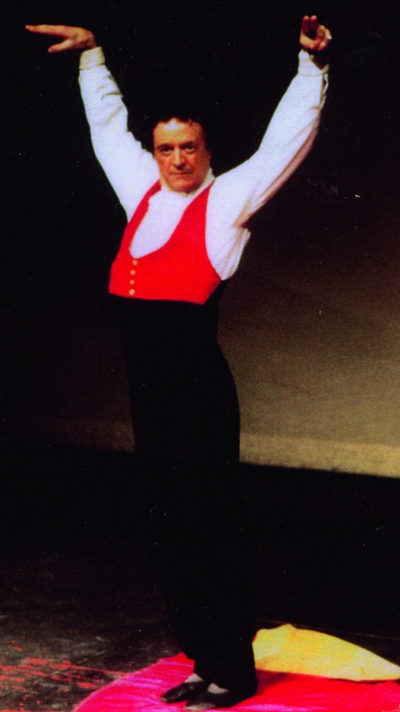Ronald ‘Trader’ Faulkner is that relative rarity: an unassuming actor. In their memoirs most actors, after the obligatory two or three chapters describing the hardships at the outset of their careers, indulge in a paean of self-glorification — mentioning their failures, certainly, but only so as to highlight their far more considerable successes. Faulkner is different. At one point he refers to himself as ‘a struggling actor approaching middle age’. (His wife somewhat brutally agreed: ‘Let’s be honest, you’ve had your chance as an actor, and at 40 you still haven’t made it.’)
Faulkner (the nickname ‘Trader’ being bestowed on him in recognition of his prowess in stealing his Australian father’s boot-leg whisky and bartering it at school for marbles) played some distinguished roles and enhanced his reputation with a production celebrating the life and work of the Spanish poet Lorca, but he never hit the big time.
His memoirs make clear how, for most actors, life oscillates between the terrifying uncertainty of unemployment and the grinding tedium of playing a not particularly attractive part in a not particularly inspiring production night after night, month after month, with matinées twice a week and the limited delights of a seedy boarding-house awaiting one when work is done.
For Faulkner there were many compensations. He went everywhere and met everyone. Though he worked frequently with Laurence Olivier, his encounters with other celebrities were, however, often desultory. He came across Ted Hughes, but ‘in retrospect it is one of my greatest regrets that I never followed up his suggestion that we should meet for a drink sometime’. He met Marlene Dietrich and earned ‘a soft peck on the lips, but that that was the end of it’.
That was the end of it too with Noël Coward, who appeared at breakfast in an elegant dressing gown, smoking a de Reske cigarette in a long silver holder and exhaling perfectly rounded smoke rings. ‘Tell me, dear boy,’ Coward murmured, ‘is your bum available this morning?’ ‘No, Mr Coward,’ Faulkner answered bravely. ‘Not this or any other morning. I’m a plunger, not a poofter.’ ‘What a tragedy! Ah well, life is full of disappointments.’
Falkner’s sex life, by the standards of most Spectator readers perhap,s was agreeably lurid. He was only seven when the slightly older Marilise offered to show him where babies came from. ‘There was something so sexy about her manner that, child though I was, I wanted to rip her skirt off myself right there and then.’ On that occasion he was thwarted by an over-attentive mother, but once he had got the idea, opportunities came thick and fast.
Like any self-respecting man of that generation he was in love with Dorothy Tutin, but that did not obviate ‘the occasional sexual adventure that chance afforded me on the side’. Renée Asherson then took on the leading role. They became ‘passionate lovers. But the relationship with this woman 12 years older than me was obviously a strain on her.’ She was, Faulkner tells us, ‘a lady in the very best sense of the word’.
Elaine Fifield, the Australian ballerina, who came next, had to make do with being ‘a truly remarkable woman’. ‘Trader’, she said, ‘will you make love to me? My marriage is a cover.’ So off they went to the Strand Palace Hotel (the Savoy would have been a little more stylish but perhaps was too expensive) for a night ‘of unforgettable love-making’. And so it went on: one wonders sometimes how Faulkner found the energy for acting.
Both his parents had been on the stage and it was in his blood: he could not have contemplated any other existence. No, he was not Prince Hamlet, nor was he meant to be; but there was a lot of fun to be had among the attendant lords, and Faulkner would seek it out. Most of us would have been driven to distraction by such a life; he has rejoiced in it. His pleasure and exultation shine through on every page.






Comments